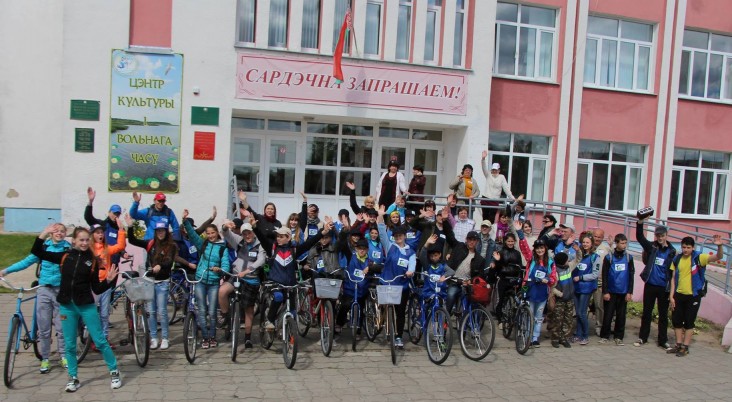
August 2016—After attending a USAID-supported study tour in the United States, Vitaly Zhukovich, director of a school in Zditovo village, Belarus, worked with local leaders, teachers and students to transform the school into an innovative community center promoting social, cultural and sporting events.
Even before his trip to the United States, Zhukovich believed that his small village school, where students did little more than attend classes and take notes, could become something more. He sought to adopt western practices and to transform the school into a meeting place for community activities.
Zhukovich believed in the Western democratic model, in which cooperation between government, nonprofits and local residents drives community development. But he needed to see the model in action so he could duplicate it in his village.
USAID selected Zhukovich to participate in its Community Connections professional exchange program in the United States in 2010, where he would learn to enhance linkages between NGOs and local officials.
During his study tour, Zhukovich saw firsthand how effectively communities in Iowa cooperate with local government to resolve important community issues. The fortuitous opportunity coincided with his recent election to the Zditovo local council.
Zhukovich always thought of school as more than an institution for formalized education. He saw its potential to coalesce the community and serve as a forum to discuss life and work. After returning from the United States, he organized a group of like-minded villagers to promote the local school as a hub of recreational and cultural activities for the village, and to raise civic pride, morale and activism in the process.
Today, the school’s teachers and students cooperate with civic activists to organize awareness-raising events on Zditovo’s history and heritage. They also develop athletic competitions and collect information about traditional folk games. Surrounding villages participate in an annual bike marathon, helping to build individual relationships with the broader regional community.
“While limiting a school’s responsibility to the formal education of its students is much easier, our school is much more interested in helping to develop our community,” explained Zhukovich. “We believe that by working with local officials and promoting community activism, we are helping this region develop.”
More than 1,000 Belarusian specialists have participated in the Community Connections program, which runs from 1998 to 2017. After their exposure to American best practices and culture, program participants return home to create new organizations, revise and develop training courses, hold seminars and workshops, and update educational materials and curriculum.
LINKS
Follow @USAIDBelarus, on Facebook, on YouTube







Comment
Make a general inquiry or suggest an improvement.